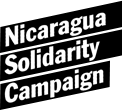NSCAG statement on recent protests in Nicaragua
NSCAG News |
on: Monday, 30 April 2018

At its meeting held on 28th April, the NSCAG Executive Committee approved the following statement on recent events in Nicaragua:-
NSCAG supports dialogue to end deaths and infrastructure destruction in Nicaragua
The trigger for the protests
As is the case with countries globally, Nicaragua is struggling with the issue of how to strengthen its social security system to address the needs of an aging population. There is currently a yearly deficit of $80m in social security funding. In order to plug this gap, the government proposed an increase of 0.75% in employees’ contributions and 3.25% increase for employers, with the retirement age remaining at 60. In addition 5% would be deducted from pensions to ensure full health care coverage. Pensions would also be restructured. These measures were agreed by the government, trade unions and the Union of Retired People but not the private sector who demanded a retirement age of 65, no increase in contributions, and other measures that would effectively cut the value of pensions by 13% a year.
Protests turn violent
- The government announced the introduction of their version of the social security law on 18 April. There had previously been protests by pensioners and on 19 April university students started demanding the repeal of the law which they interpreted as cuts to pensions. The protests started at the technical university in Managua and rapidly spread to other state universities and cities: Leon, Granada, Estelí, Masaya, San Marcos, Bluefields, Ocotal and Jinotega.
- Some initially peaceful protests tipped over into violence. Riot police used teargas, rubber bullets and in some situations live ammunition. A minority of the protestors used Molotov cocktails and mortars.
- Several independent TV channels were temporarily taken off the air on 19 April.
- According to human rights organisations over 30 people have lost their lives. This includes protesters, FSLN members, a journalist, police officers, and one person in Leon who died in a building that had been set alight by protesters.
- In addition to the deaths and injuries there has been widespread destruction of infrastructure including social security offices, police stations, municipal authority offices in Estelí and Granada, university buildings in Managua and Leon, Sandinista party offices in Chinandega and Masaya, government offices in Managua, and medical supply stores of the Ministry of Health. There have also been attempts to break into the “Denis Martinez” baseball stadium in Managua, and the new Fernando Velez Paiz Hospital.
- In the resulting chaos opportunistic looting followed of shops, vehicles and businesses.
- The protests by the students and opposition groups have gone beyond calling for the repeal of the social security law to calling for justice, democracy, the end of repression, and the release of those arrested. Some are also calling for Daniel Ortega and Rosario Murillo to step down accusing the government of refusing to listen to their demands, corruption and implementing repressive measures against them.
- On 22 April, President Daniel Ortega announced the repeal of the social security reforms and invited the private sector and the Catholic Church to form part of a dialogue to look for consensus regarding the most viable way of securing the future of the social security system. He thanked the Pope, OAS and European Union for messages calling for the restoration of peace and security and endorsed their calls for an end to the violence and senseless loss of life.
- On 26 April, all protesters who had been arrested were released.
NSCAG support for peace initiatives without foreign interference
NSCAG condemns the excessive use of force by the Nicaraguan police including firing on protesters resulting in deaths.
NSCAG condemns the actions of some politically motivated protesters who also carried out acts of violence resulting in deaths and damage to and the destruction of buildings and institutions.
NSCAG is concerned that there is a politically motivated and co-ordinated attempt to manipulate people’s grievances into calls for regime change as has happened in Venezuela.
NSCAG supports the call of the Organisation of American States, the European Union, and the Pope for dialogue involving all sectors including the government and protesters to bring about a political solution to end all violence.
NSCAG fully supports the Government initiated national dialogue- with the Episcopal Conference acting as mediator - involving all sectors to unite the country in reaching consensus on how to continue addressing the key challenges the country faces in maintaining social and economic stability at the same time as combatting poverty and unemployment.
NSCAG applauds Nicaragua’s many advances in achieving economic stability and poverty reduction over recent years and reiterates our ongoing solidarity with the Nicaraguan trade union movement.





